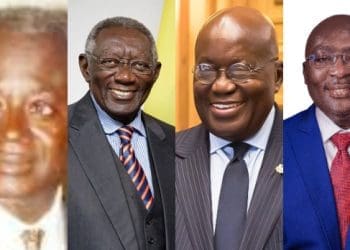President John Dramani Mahama has strongly defended the recent GH¢1 tax on fuel in Ghana’s fuel levy, describing it as a necessary and strategic measure to stabilise and secure the future of Ghana’s energy sector.
Addressing the public’s reaction to the new fuel price adjustment, President Mahama acknowledged the concerns of Ghanaians but stressed that the fuel tax increment is essential to ensure long-term energy sustainability.
“This decision, though difficult, is necessary and justifiable,” he said when the National Economic Dialogue Planning Committee presented its final report to him in Accra on Wednesday, June 4, 2025.
“This revenue will be strictly ring-fenced to pay down legacy debts, finance ongoing fuel purchases, and avert the risk of recurring power shortages,” he stated.
He highlighted that the revised fuel levy is projected to raise approximately GH¢5.7 billion annually, revenue that will be specifically allocated to address urgent needs in the energy infrastructure and power generation sectors.
President Mahama assured citizens that the funds would be ring-fenced—used exclusively for critical improvements in Ghana’s energy supply, power distribution, and infrastructure development.
Parliament has approved the Energy Sector Levy (Amendment) Bill, 2025, which introduces a GH¢1 tax of fuel on every litre of petroleum products sold in Ghana.
The controversial bill was passed late Tuesday, June 3, 2025, despite fierce resistance from the Minority Caucus, who staged a dramatic walkout during the voting process.
According to the government, the new levy is projected to generate an additional GH¢5.7 billion in revenue each year.
This revenue is expected to be channelled towards addressing the staggering financial challenges of the country’s energy sector, including ballooning debts and fuel supply constraints for thermal power generation.
Despite government assurances, the Minority Caucus in Parliament strongly opposed the measure, calling it an unjust and inappropriate burden on already struggling Ghanaians.
During the approval process, minority MPs walked out of the chamber in protest, arguing that the majority side lacked the constitutional quorum required to pass such a significant fiscal measure.
The walkout underscored the political tension surrounding the bill. Minority spokespersons questioned both the timing and necessity of the new levy, especially coming on the heels of the recent repeal of the unpopular Electronic Transfer Levy (E-Levy).












